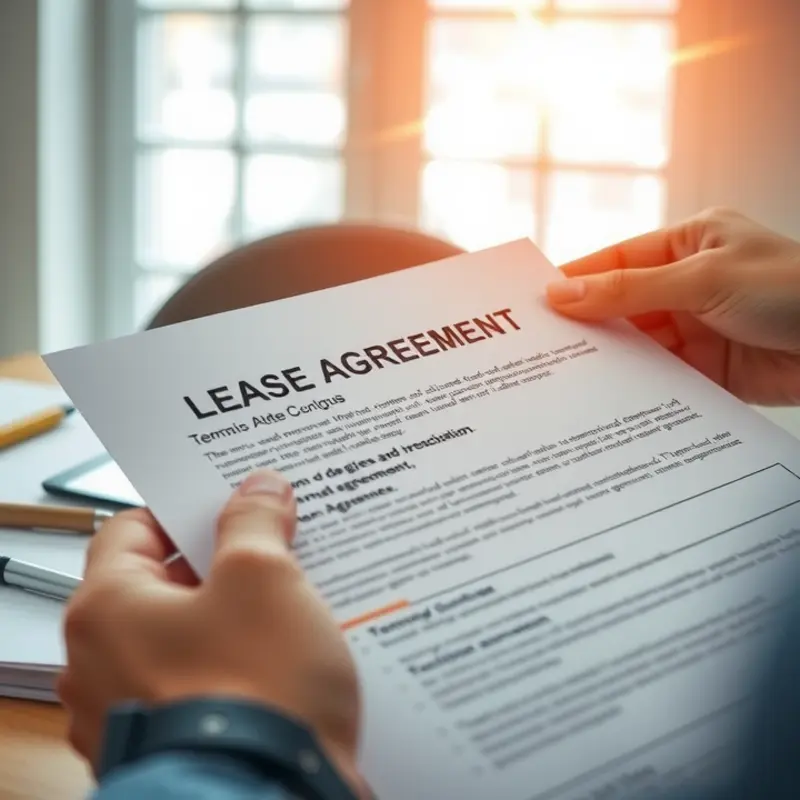Finding the perfect rental space can be both thrilling and daunting, especially for young professionals, students, couples, and families. One of the major hurdles in this process is the often substantial rent deposit required by landlords. Thankfully, various rent deposit assistance programs are available across the U.S. that can help alleviate this financial burden. These programs aim to provide support, guidance, and education to newcomers in the rental market, ensuring they have the resources they need to make informed decisions. Understanding these options can empower you, granting financial clarity and the confidence to navigate the rental process effectively. By exploring what is available in your locality and knowing where to seek help, you can transition into your new home smoothly while keeping your budget intact. Let’s delve into the kinds of programs that exist, how to apply for them, and tips for navigating the lease agreement process with ease and reassurance.
Types of Rent Deposit Assistance Programs

Understanding the types of rent deposit assistance programs can be crucial for young professionals, students, and families. These programs come from various sources, each with unique benefits and requirements.
Government Assistance Programs: These include federal, state, and local initiatives designed to aid individuals facing financial difficulties. The most notable is the Housing Choice Voucher Program (commonly known as Section 8). While traditionally aimed at rent, some areas allow these vouchers for deposit assistance. Eligibility typically depends on income, with preference sometimes given to seniors, families, and those with disabilities. Applications are processed through local public housing agencies (PHAs), and waiting periods can vary significantly based on demand.
HUD Grants: The U.S. Department of Housing and Urban Development (HUD) offers various programs to assist low-income renters. While not direct deposit assistance, their grants often fund local programs that can aid with deposits. Checking with local HUD offices or browsing their website can reveal options pertinent to your location.
Nonprofit Organizations: Many nonprofits focus on housing stability. Organizations often have programs specifically targeting young individuals or families facing housing insecurities. These groups may provide one-time assistance grants or loans to cover rent deposits. Eligibility generally includes demonstrating financial need, though some have specific criteria like being a recent graduate or transitioning from homeless shelters. Application processes vary but often require proof of income and residency. Assistance can be swift, often finalized within weeks.
Local Community Resources: Communities sometimes develop initiatives to assist their residents, providing a more localized touch to housing challenges. These resources can be particularly useful for students or those new to an area. Colleges, for instance, might have specific funds for students in need. Additionally, local community centers or religious organizations might offer deposit loans or grants. Checking with local city offices or community centers can yield helpful leads.
When considering these resources, it’s essential to conduct thorough research. For those moving to new cities, such as Gainesville, FL, local guides and resources can provide additional insights into available assistance options (read more here).
Timeframes for assistance vary. Government programs, especially at the federal level, may involve longer waiting periods due to high demand. Local nonprofits or community-based programs can often offer quicker support, albeit with potentially limited funding.
Ultimately, the key to navigating these programs lies in early and proactive exploration of options, understanding eligibility criteria, and preparing necessary documentation ahead of time.
Navigating Your Lease: Practical Tips

Securing financial assistance for your rental deposit is just the first step. Successfully navigating your lease agreement is crucial to ensure a smooth renting experience. Understanding lease terms, asking the right questions, and knowing your rights are all essential. Here’s how to proceed with confidence.
First, acquaint yourself with key lease terms. Most leases will include the lease term, the length of time you’re committed to rent the property. Be clear on the start and end dates and any penalties for early termination. Another term to watch is the rent due date; missing it could result in late fees or penalties. Additionally, understand the security deposit clause. This explains the conditions under which you can recover your deposit. Check if there are clauses about interest on security deposits, which varies by state.
Important lease sections also include maintenance responsibilities. Know what you are responsible for fixing and what falls to the landlord. This could include everything from light bulbs to plumbing. In some leases, you may find rules on subletting and guest stays. These outline your ability to rent out space or have guests for extended periods. Violating these could lead to hefty penalties.
When discussing the lease with your landlord, prepare a list of questions. Ask about utilities included in the rent or any additional fees. Clarify the policy on pets if you have or plan to have one; not all places are pet-friendly, and they might require an additional deposit. For more tips on maintaining a pet-friendly home, check out this guide. Be sure to inquire about parking situations if you own a vehicle, as some areas have limited parking availability.
Common pitfalls in lease agreements often relate to neglecting to read the fine print. For example, automatic lease renewal clauses can bind you to another year without notice if not understood. Also, pay attention to the termination notice period; failing to provide adequate notice can incur extra charges.
Understanding your tenant rights is vital. Rights typically include living in a habitable environment and receiving timely repairs from landlords. If your landlord plans to enter your apartment for any reason, most states require them to give notice. Familiarizing yourself with these requirements could save headaches later on.
It is equally important to recognize your responsibilities. Paying rent on time, maintaining cleanliness, and adhering to noise guidelines are part of your duties. Taking these seriously can ensure a harmonious relationship with your landlord and neighbors.
Finally, ensure every agreement is in writing. Verbal agreements can lead to misunderstandings or disputes. Having everything documented protects you and clarifies expectations.
Understanding and navigating lease agreements can seem daunting, but a thorough review and the right questions provide a solid foundation. By being informed and proactive, every young professional, first-time renter, and family can move forward with confidence.
Final words
Securing a rental can be a significant milestone in one’s life, especially for young professionals and families. Having access to rent deposit assistance programs empowers renters by easing initial financial roadblocks and allowing them to focus on making their new space a home. Remember, understanding and navigating your lease helps solidify your rights as a tenant, ensuring a positive renting experience. By utilizing available resources and information, you can step confidently into the world of renting, ready to create memories in your new home.









